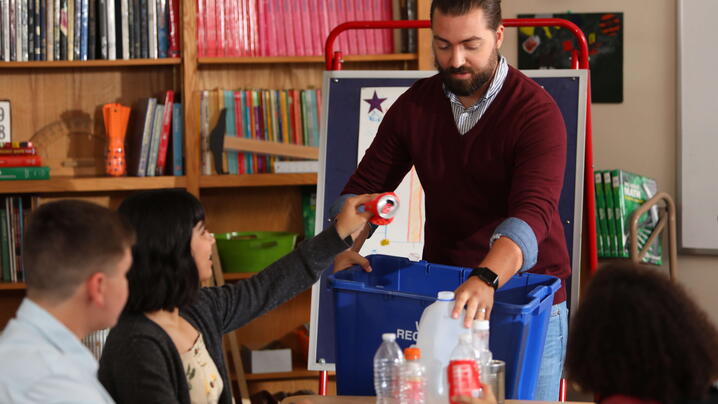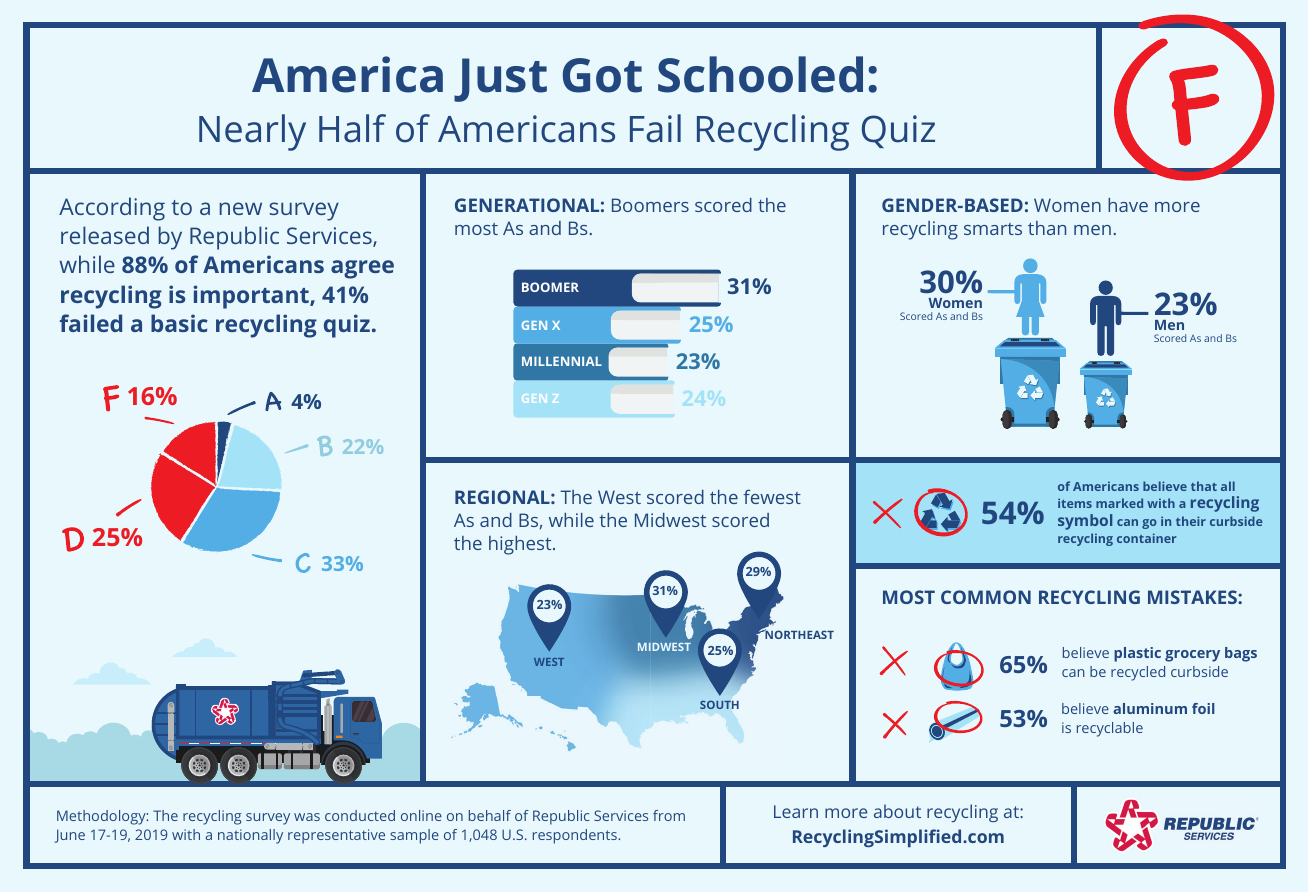
By Richard Coupland III, vice president of municipal sales, Republic Services
America’s cities, counties, and towns have done a great job of getting residents to agree that recycling is important. But across the country, 30% of the items placed in recycling containers do not belong there. They are either soiled by food or other residue, or they are not recyclable.
We know that consumers care about the environment and want to recycle—they just do not always know what to recycle, or how to do it correctly. In fact, in a recent survey, 88% of Americans said recycling was important, but nearly half failed a basic recycling quiz and only 4% received an A grade.

Plastic bags and clothing were among the top items that consumers mistakenly thought could be recycled curbside. Perhaps the biggest misconception? Fifty-four percent believed that all items marked with a recycling symbol could go in their residential recycling container.
Confusion over recycling labeling is one issue, but “wish-cycling” is another. This is when consumers throw items in the container in the hope that they can be recycled. Old jeans or concert T-shirts can be reused, but they need to be donated, not placed in the curbside recycling container.
Local governments are dealing with the expense of collection and processing when consumers recycle incorrectly, which can result in an entire load of otherwise good recyclables being sent to the landfill.
America Recycles Day is a good time to pause and examine what we can do to help consumers know what, and how, to recycle.
Get Back to Basics
We need to simplify recycling. We need to remind residents to keep these three steps in mind:
1. Know what to throw. In general, consumers should stick to paper and cardboard, metal and aluminum cans, and plastic bottles and jugs.
2. Recyclables should be empty, clean and dry. A quick rinse and pat dry are all it takes to ensure leftover food or liquid does not spoil the good paper and cardboard in the bin.
3. Don’t bag it. If sorters at the recycling facility cannot see what is in a bag, it likely will go in the trash. Also, plastic bags get tangled in sorting equipment, causing delays or damage.
Public Education
Direct feedback drives change. A public education campaign that included consumer tips, marketing, and direct-to-home fliers in one Texas municipality led to a significant decrease in contamination rates.
The campaign included an eight-week audit, during which inspectors checked residents’ recycling containers and left “Oops” tags when contaminants were found. At the end of that eight-week period, the contamination rate dropped from a high of 21% to 11%.
Lower contamination rates reduce the costs of collecting and processing recyclables and, ultimately, the cost to residents. Cleaner recyclables also can result in increased value for materials such as aluminum cans and plastic water bottles, potentially bringing more revenue back to communities.
Recycling School Curriculum
When we say it is time to go back to school, we mean it. Educators have helped Republic Services develop a free, downloadable curriculum designed to incorporate recycling education in schools. Our goal is to support students’ real-world learning about sustainability and how to recycle properly.
The program aligns with individual grade-level curriculum standards in multiple disciplines such as science and STEM, English, language arts and literacy, math and social studies. It contains step-by-step lesson plans for pre-kindergarten through twelth grade with supporting teaching materials, including classroom activities, videos, handouts, virtual field trips, and completion certificates.
By taking a few simple steps, residents of all ages can become better recyclers and do our part to help our communities—and our planet—thrive.
New, Reduced Membership Dues
A new, reduced dues rate is available for CAOs/ACAOs, along with additional discounts for those in smaller communities, has been implemented. Learn more and be sure to join or renew today!
